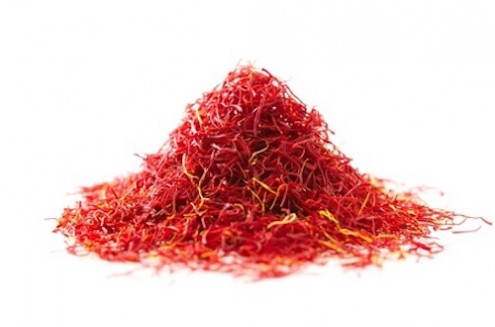Until now, saffron has been used in the supplement industry as a serotonin enhancer, since it can boost the neurotransmitter that gives you a better mood, better outlook, and overall a feeling of well being. It has also been used as a weight-loss nutrient since it can control appetite and stop sugar cravings.
Saffron can be expensive, but it may be worth it; not only can it spice up a dish and help you look and feel better, but turns out saffron may also be able to help stop cancer from developing.
The Three Stages of Cancer Cells
Great research is being published on the anti-cancer properties of this amazing spice. As Dr. Michael Smith explains, in a cancer cell there are a few things that need to happen for it to take over. First, it has to become a cancer cell through a process known as carcinogenesis. Second, the cancer cell needs to build a defense for the immune system and shut off its “kill switch” to continue living. Finally, it has to spread. Fortunately, saffron can impact all of these areas.
The first thing a cancer cell must do is actually become cancerous. Due to free radicals, viruses, and many other triggers, DNA mutation can occur in the genes that regulate growth. If these mutations are sustained and passed on, it develops into carcinogenesis.
In one study, hamsters were given saffron, followed by a powerful carcinogen known to cause tumors. The study found that hamsters pre-treated with saffron had no tumor formation, with the cancer having been completely prevented. Results like these demonstrate how saffron may help prevent initial cancer development.
It can be difficult to recreate these results in humans however, since you can’t give heavy carcinogens to subjects. For human studies, data needs to be cross-examined between saffron consumption and tumor or cancer development across a large population.
If a cancer cell already exists, it needs to survive. The best way it ensure its survival is by shutting off the programmed cell death. There is a mechanism that allows an aging, healthy cell to basically kill itself before weakening. Cancer cells have the ability to shut that mechanism off, allowing cell division and growth to continue uninterrupted.
According to Dr. Smith, saffron has several different components that have been shown to retrigger the cell death mechanism in several types of cancer cells, including prostate, breast, colon, liver, and brain.
What if the cancer cell has developed, and successfully shut off the self-killing mechanism? The third and final stage of cancer development is spreading out to other areas. In a 2007 study, saffron was found to inhibit the rate of spread, and “sharpened significant proliferation.”
Studies are still ongoing, and researchers are trying to find new ways to test the limits and abilities of saffron and its effect on cancerous cells.
In the accompanying audio segment, Dr. Mike discusses saffron and the many anticancer properties this plant carries.
Saffron has been used as a natural treatment against many health aliments.
Additional Info
- Segment Number: 1
- Audio File: healthy_talk/1513ht4a.mp3
- Organization: Life Extension
- Guest Website: Healthy Talk MD
- Length (mins): 10
- Waiver Received: No
- Internal Notes: NO GUEST
- Host: Mike Smith, MD
Published in
Healthy Talk w/ Dr. Michael Smith
Tagged under
